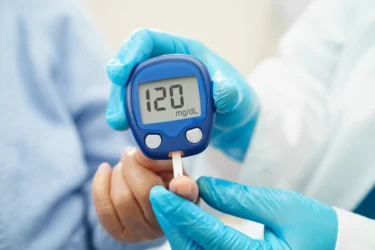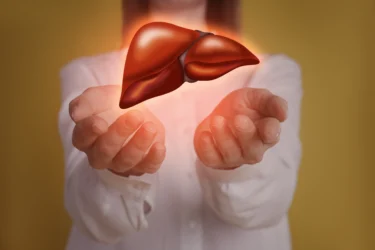Radish (Mooli): Uses, Benefits, Side Effects and More!
By Dr Anuja Bodhare +2 more

Get,

to manage your symptom
Get your,


4 Cr+ families
benefitted

OTP sent to 9988776655



You’ve successfully subscribed to receive
doctor-approved tips on
Whatsapp

Get ready to feel your best.

Hi There,
Download the PharmEasy App now!!


Register to Avail the Offer
Send OTPBy continuing, you agree with our Privacy Policy and Terms and Conditions

Hi There,
Sign up on PharmEasy now!!
Trusted by 4 crore+ families

OTP sent to 9988776655



You have unlocked 25% off on medicines




Code: NU25
By Dr Anuja Bodhare +2 more
Table of Contents
The common radish is scientifically known as Raphanus sativus L. It belongs to the family Brassicaceae. It is considered a root vegetable as it can store starch and other bioactive compounds. The shape of radish resembles actual roots. Its colour varies from white in Asia to red and different colours (green, purple and black) in Europe, although its flesh is white in most Asian and European countries. The intense flavour and diverse tastes of radish are owing to an essential compound known as isothiocyanate. Due to this characteristic flavour and taste, it is popular in countries such as Hawaii, Japan, and the Philippines1.

Radish is a low-calorie vegetable and a good source of a wider range of nutrients1.
Did you know?
Bioactive compounds such as polyphenols, glucosinolates and isothiocyanates contribute to the beneficial potential of radish1,3. It is also used as a remedy in Indian, Unani and Greeko-Arab to manage various conditions4. The potential properties of radish are:
The extracts of radish may be used to manage many conditions1. Let’s read on to see how munching on some radish can make you healthier.

Many studies show that radish extract contains antioxidants such as polyphenols that enhance insulin secretion. Further, radish extract was observed to potentially inhibit enzymes (glucosidase) that converts starch into simple sugars. It may augment the defence mechanism with its antioxidant activity, may reduce lipid peroxidation and oxidative stress. This may indicate that it may be helpful in maintaining energy metabolism and glucose uptake and may reduce glucose absorption in the blood4. However, Before using radishes or any other herbal remedies for diabetes, have a consultation with your Ayurvedic doctor provider so that he can guide you with correct choices.
In my perspective, radish might be a powerhouse of nutrients that may offer multiple health benefits. They are packed with antioxidants, calcium, and potassium, all of which may contribute to lowering high blood pressure and reducing the risk of heart disease. Additionally, radishes are a natural source of nitrates, which might improve blood flow throughout the body.
Dr. Siddharth Gupta, B.A.M.S, M.D (Ayu)

Several studies have recorded the potential beneficial effects of radish extract for the liver. In a study3, the bioactive compounds in radish root and sprouts were found to reduce the seriousness of fatty liver disease in animal models. In another study on animal models, black radish extracts exhibited liver protective effects. Further, the administration of a radish extract resulted in reduced oxidative stress and prevented fat accumulation. The effects shown by radish could be credited to the antioxidant activity of bioactive compounds present in radish extracts.
Therefore, it may help with the decrease in the levels of enzymes that indicate liver damage and the reduced levels of lipids and cholesterol suggest that radishes might indeed have potential benefits for liver. Further studies are needed to establish the benefits of radish for the human liver. If you are suffering from any liver-related issues, consult your doctor before using radish or any other herbal remedies.
From what I have seen and read, radish may have great benefits for the urinary and kidney function. Thus, by including radishes in your diet, you may contribute to the overall health of your urinary and kidney systems7.
Dr. Rajeev Singh, BAMS

Due to the presence of secondary metabolites such as glucosinolates, eating may have benefits that may help people with cancer. Detoxification enzymes, prevention of cell cycle progression, and activation of apoptosis (cell death) are the potential anticancer mechanisms that may be exhibited by bioactive compounds present in radish as per studies. These are responsible for the anticancer activity of radish against different types of cancer cell lines3.
Cancer is a severe medical condition that requires medical diagnosis and treatment. Before using any herb or fruit, consult your doctor.

In a study5 conducted on animal models, it has been shown that saponins extracted from radish may be helpful with the loss of human hair. The radish crude saponin-treated group demonstrated the potential benefits for hair follicles (HFs) in the deep part of the skin and may ultimately develop HFs corresponding to the anagen phase (or active phase) of the hair-growth cycle. The benefits of radish are not sufficiently studied for human hair. If you face hair fall, reach out to your healthcare provider for a consultation.
Though the studies above show the benefits of radish in various conditions, but these are insufficient and there is a need of further studies to establish the true extent of benefits of herb on human health.
The edible part of radish is mainly its roots. Also, we can eat its leaves, pods, seeds, flowers and sprouts of radish in various forms1,3. Radish can be used in the following ways:
You must consult a qualified doctor before taking any herbal supplements. Do not discontinue or replace an ongoing treatment of modern medicine with an ayurvedic/herbal preparation without consulting a qualified doctor.
In a study6 on animal models, it has been seen that feeding animals with high quantities of radish led to certain side effects on the thyroid glands and its functioning as described as follows:
Therefore we should take care while consuming radish in large quantities and it is better to enjoy it in moderate amounts6. Moreover if you observe discomfort or any other uncomfortable symptoms on eating radish, you must consult your Ayurvedic physician. They will be able to assess the situation and guide you regarding the course of action further. Even natural preparations can show specific side effects on individuals as everyone’s body reacts differently to certain compounds present in them.
Also Read: Karela (Bitter Gourd): Uses, Benefits, Side Effects and More!
Radish is generally considered to be safe if it is taken in the recommended dosages and as food. However, general precautions should be followed while consuming radish. Please do not try to treat yourself by consuming herbs. Ayurvedic herbs may have potential benefits, but it is advisable to consult a qualified Ayurvedic physician before taking any herb for its health benefits.
Studies on animal models show that having too much radish can cause an increase in the level of thyrotropin6. However, no valid study provides evidence on safety precautions to be followed with radish extracts. However, extra care needs to be taken by pregnant women, lactating mothers, children, and older people while having radish. In case of any unusual symptoms, immediately consult your Ayurvedic physician.
Also Read: Bottle Gourd (Lauki): Uses, Benefits, Side Effects and More!
We cannot deny the possibility of certain drugs reacting with herbs and food like radishes. Therefore, it is essential to consult your Ayurvedic physician before consuming any herbal item in more than regular quantities. Your Ayurvedic physician can appropriately modify the dosage and prescribe as per your current medications, conditions, and requirements.
Also Read: Pudina (Mint): Uses, Benefits, Side Effects & More!
The root is usually consumed in the diet as pickles, salads or cooked in curries, but it may develop conditions like hypoactive thyroid gland (where your thyroid gland does not produce enough hormones). So, radish should be eaten in a moderate amount6.
Yes. There are several potential benefits of radish for the liver stated in studies. It may help to manage lipids and cholesterol levels and may potentially reduce oxidative stress due to its bioactive compounds. Several animal studies documented the benefits of radish in fatty liver disease, liver cancer owing to its liver-protective properties3. However these studies are insufficient to identify the benefits of radish for liver in humans. You must always consult your doctor for advice.
Yes. The extract of radish contains saponins that may help with human hair fall. Animal studies have shown its ability to increase the number of hair follicles by supporting the active phase of hair growth5. But further studies are needed to understand its actual potential for human hair.
Studies show that radish has many potential benefits against cancer due to its anti-cancer properties. Cancer is a serious medical condition that may need medical diagnosis and treatment. Before using any herb or fruit for such conditions you must consult your doctor for accurate advice3.
There is no scientific evidence validating whether eating radishes raw or cooked is more beneficial. However, there are similar benefits to eating raw radish and cooked radish.
Disclaimer: The information provided here is for educational/awareness purposes only and is not intended to be a substitute for medical treatment by a healthcare professional and should not be relied upon to diagnose or treat any medical condition. The reader should consult a registered medical practitioner to determine the appropriateness of the information and before consuming any medication. PharmEasy does not provide any guarantee or warranty (express or implied) regarding the accuracy, adequacy, completeness, legality, reliability or usefulness of the information; and disclaims any liability arising thereof.
Links and product recommendations in the information provided here are advertisements of third-party products available on the website. PharmEasy does not make any representation on the accuracy or suitability of such products/services. Advertisements do not influence the editorial decisions or content. The information in this blog is subject to change without notice. The authors and administrators reserve the right to modify, add, or remove content without notification. It is your responsibility to review this disclaimer regularly for any changes.
Comments

Leave your comment...
You may also like
Comments